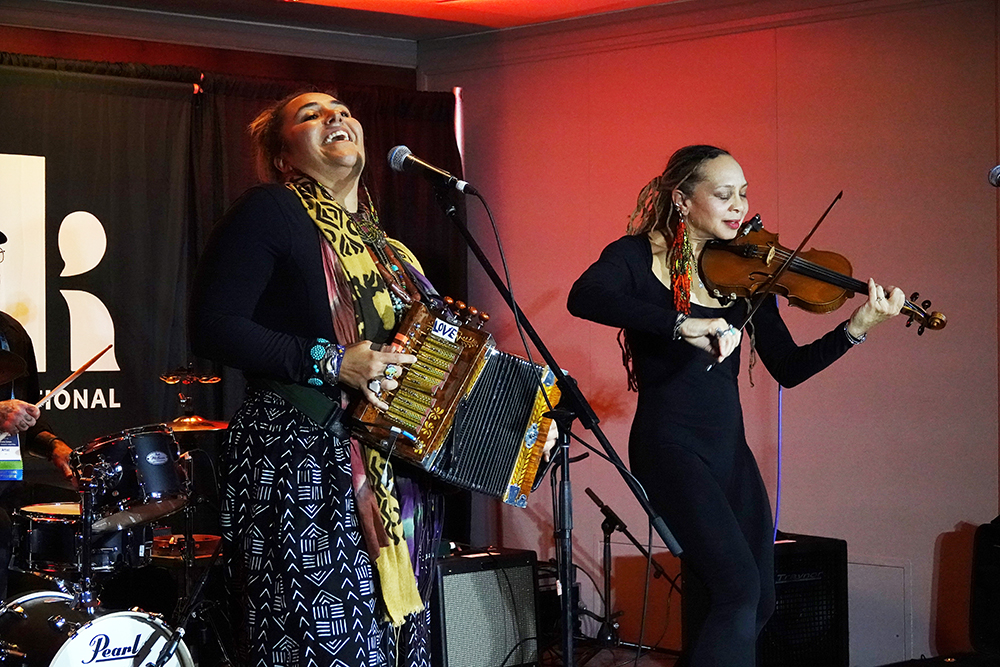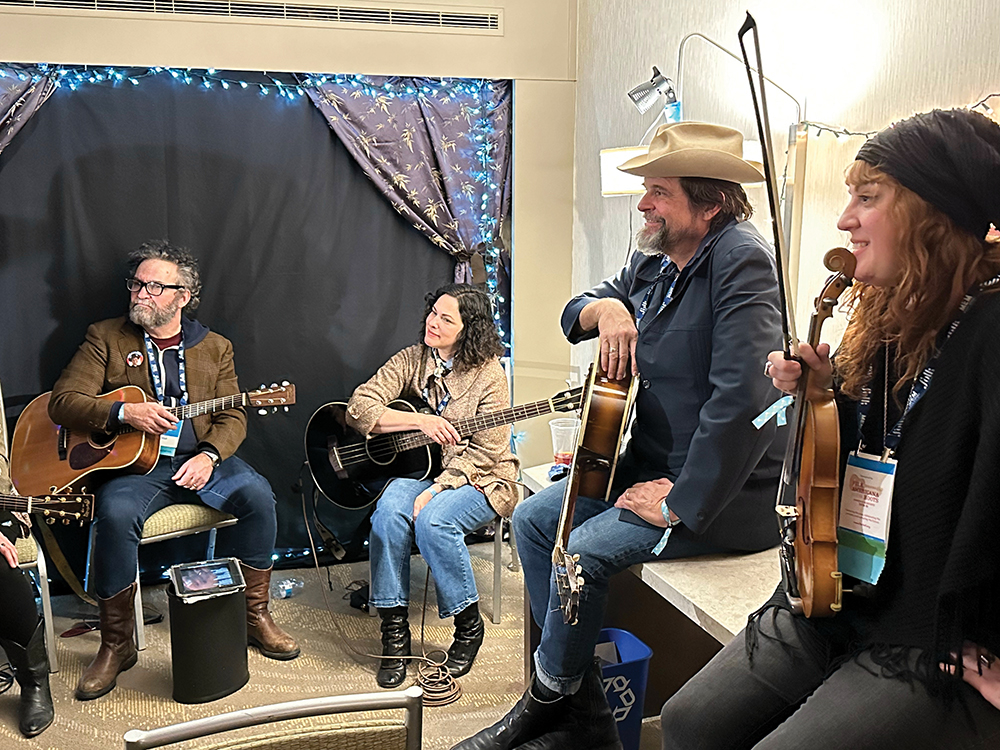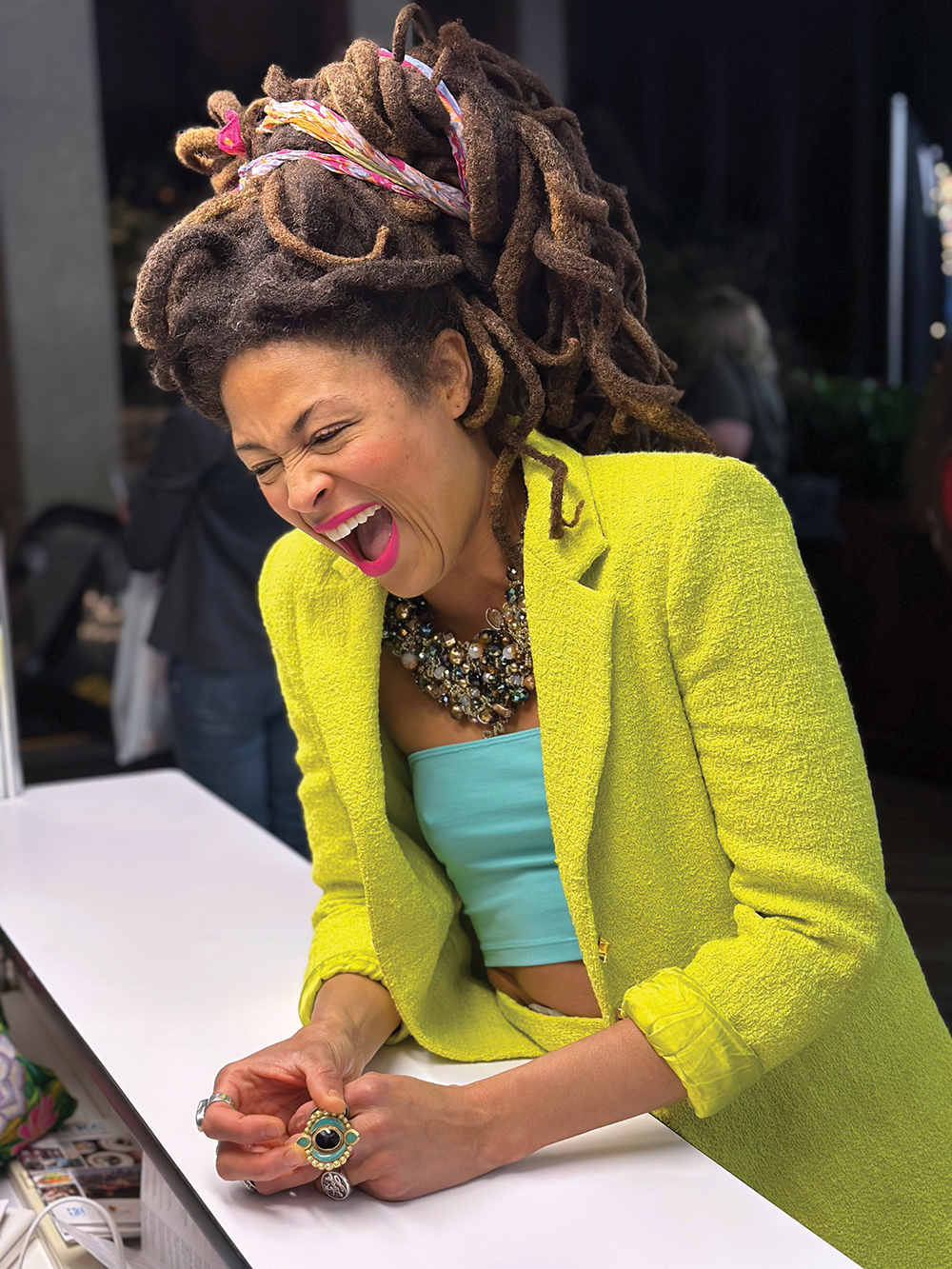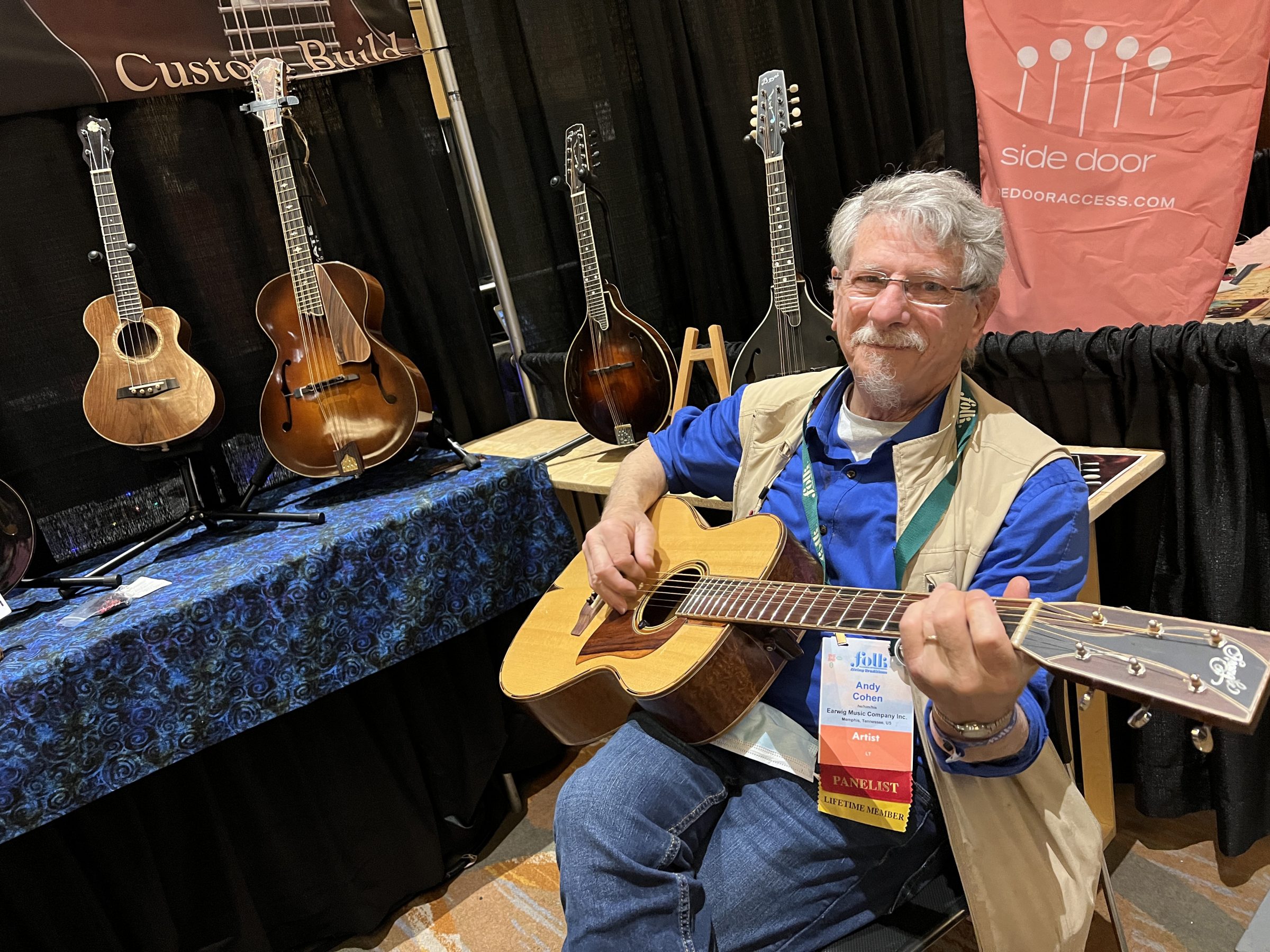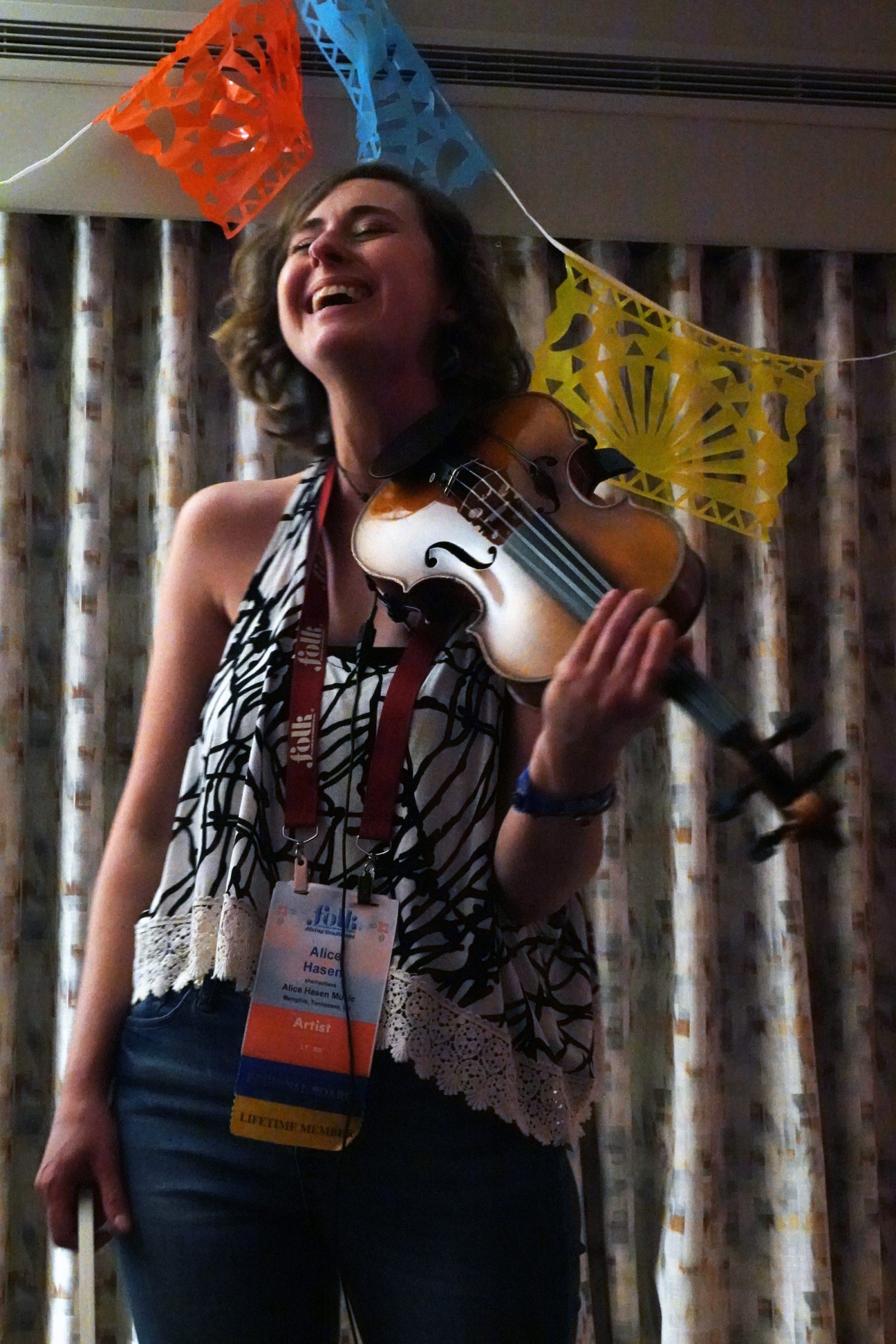Anyone who believes folk music is a male-dominated profession has never attended the Folk Alliance International Conference, where women dominated the five-day festival that ended Sunday, as they have for years.
When a singer like Marcella Simien of Memphis pulled out her antique squeeze box and started to sing, there was no question that she was in charge.
The 37th annual conference, which convened in Memphis for several years, was held at Le Centre Sheraton Montreal Hotel in a city still digging out from a blizzard that dumped more than two feet of snow five days earlier. The more than 2,400 music fans from around the world didn’t mind so much. It just meant that they stayed inside and heard intimate concerts held almost 13 hours a day by more than 1,000 performers in more than 100 spaces, as large as a theater or as small as a hotel room. How intimate? Some 2 a.m. shows were performed for only two or three people.
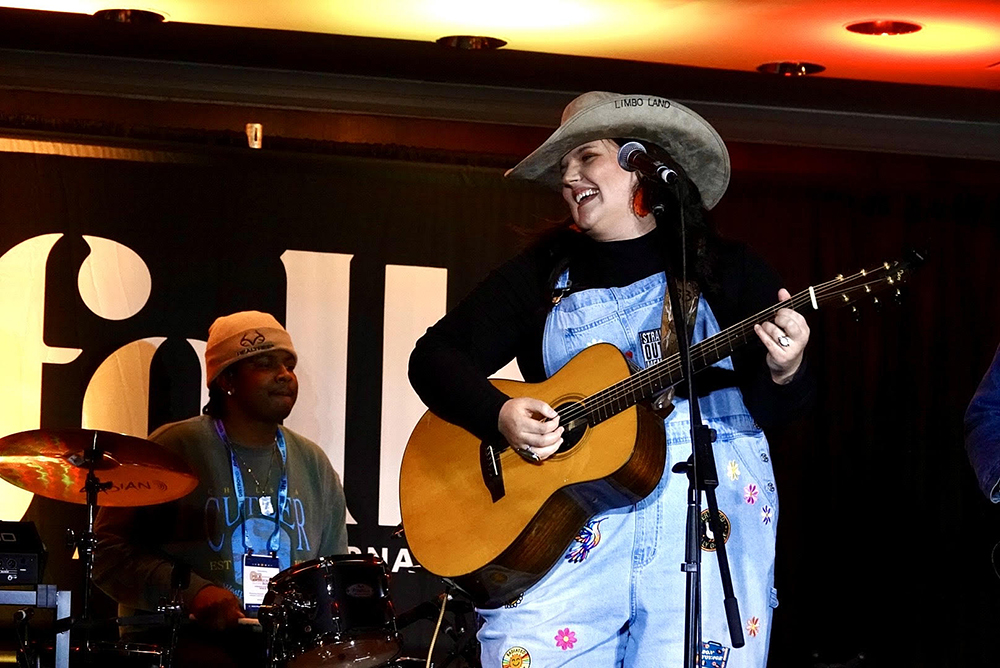
On a larger stage, Simien performed a show that defied convention and labeling, though she called it “psychedelic swamp soul.” A well-known music and arts figure in Memphis and daughter of two-time Grammy Award-winning zydeco artist Terrance Simien, she sometimes performs with her dad in the Zydeco Experience.
And she believes the spirit of her great-grandmother influences her life and decisions.
“She came to me in a dream,” she said. “I never met her but was told all the stories of how she married at age 15 and had 15 children. They lived off the land in rural Louisiana. We are a part of a generation of survivors.”
She said Memphis has been very good to her.
Her new CD, with the long title of To Bend to the Will of a Dream That’s Being Fulfilled, was just released.
Performing with Simien at Folk Alliance was the enigmatic singer-dancer-actress-violinist Anne Harris, originally from Yellow Springs, Ohio, a product of a Creole background. She spent nine years touring with Otis Taylor. Her exotic performances, which include dance, are captivating. Her new CD release, I Feel It Once Again, comes out on May 9th.
Memphians Savannah Brister and Rachel Maxann also played the conference’s Soul Stage. They were but a few of the hundreds of performers hoping to impress the many club promoters, festival organizers, disc jockeys, agents, and music critics that this event is designed for.
The pace is exhausting. There are practical classes in the morning, teaching artists how to find their own voice, hire lawyers, and track their taxes, as well as interviews with performers and newsmakers.
Attendees count on word of mouth to choose which shows to attend. Walking down a crowded hallway, they hear snippets of songs coming from the hotel rooms turned mini-studios, which draw them inside. Artists and promoters often offer snacks and drinks to lure people in for a song or two.
Hands down one of the superheroes of the week was Crys Matthews, a powerful singer-songwriter from Nashville, whose three songs at a late-night showcase stunned a standing room only crowd into silence — followed by massive applause.
She was on a late-night bill with Dar Williams and The Nields, who also killed. Matthews held her own with those two powerhouse acts, which is no simple feat.
Seek out her quiet protest song, “My Kind of Christianity.” That’s how it’s done.
And lest people think there were no quality male performers, there were many. Festival veteran Steve Poltz of Nashville performed before a packed house in one of the larger theaters and was a huge hit. He read lyrics scrawled on paper that he wrote the night before about a conversation with Jesus. Many other artists like Dan Navarro, John Muirhead, and David Myles brought up the testosterone level.
The next Folk Alliance International Conference will be in a much warmer city, New Orleans, January 21 to 25, 2026. Many people in Montreal fondly remembered when it was held in Memphis. For information on how to attend, go to folk.org.
